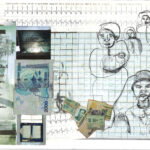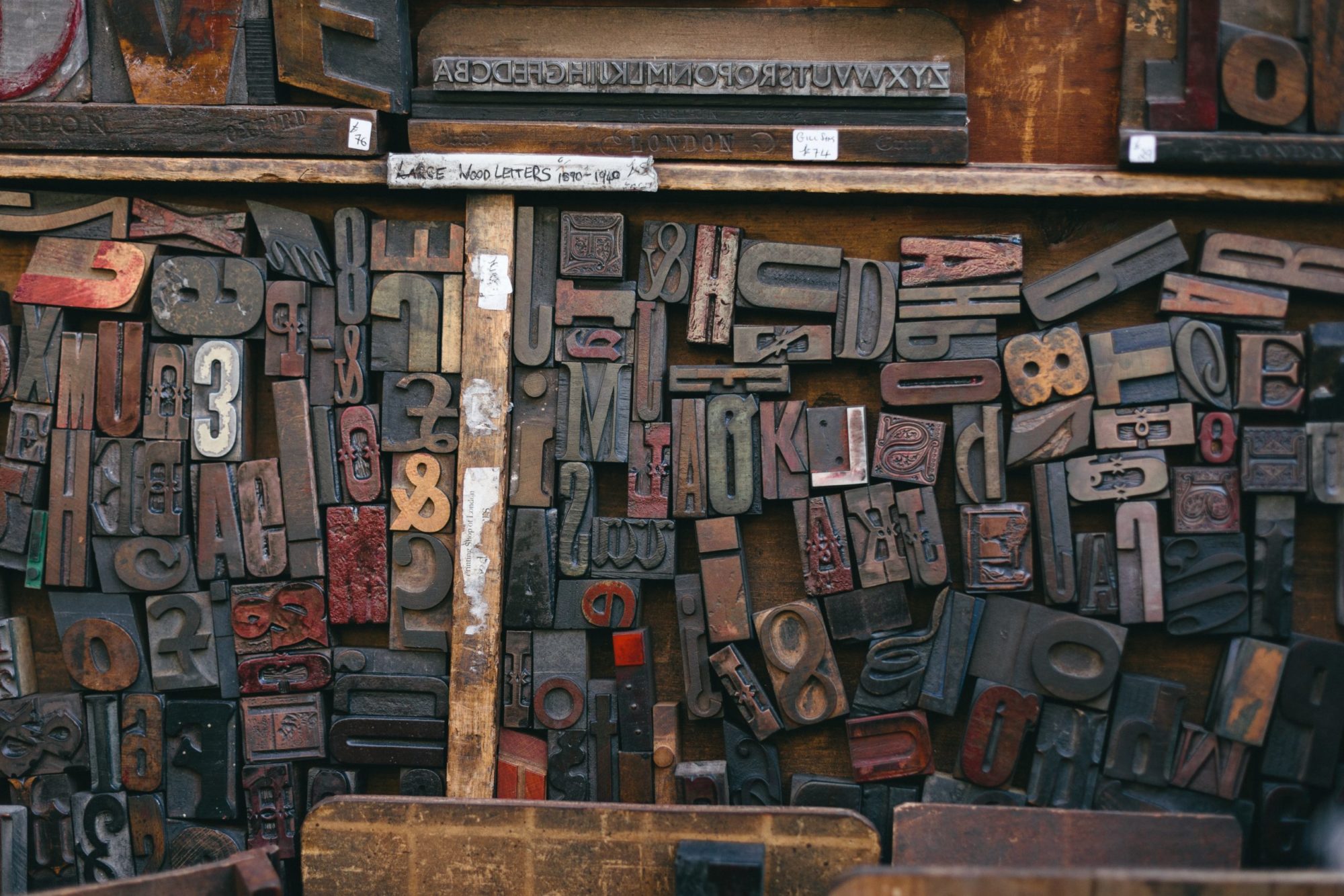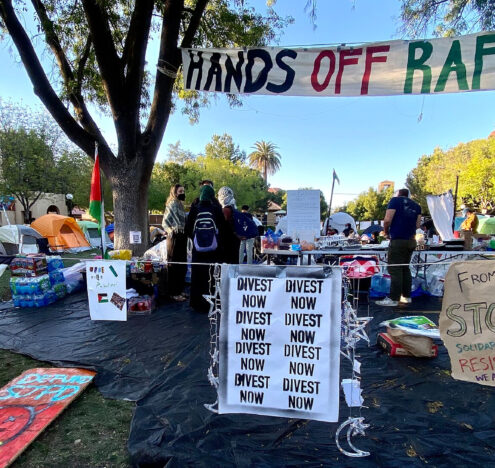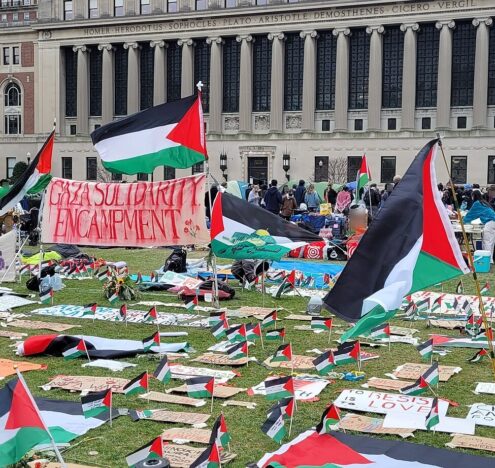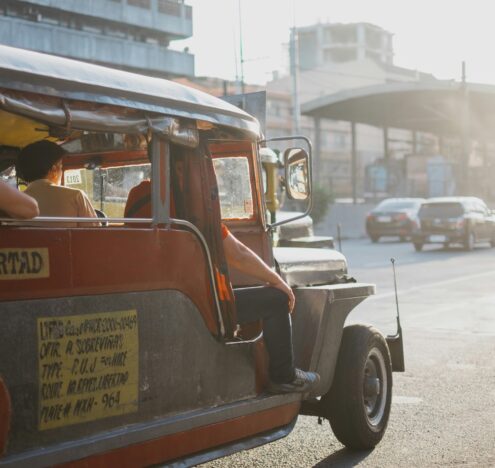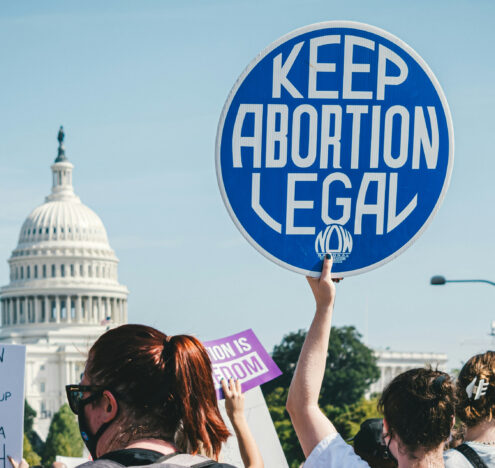A few days after Russia invaded Ukraine, five of us — people of color — sat on a Zoom call. We represented different peace and security organizations from across the US. We were supposed to be collaborating on a joint project, but the meeting became a safe space, somewhere to express our feelings. Our empathy and concern for the Ukrainian people soon became intricately woven with frustration, disappointment, and anger over how the media and politicians were reporting on this conflict. Seeing the ways in which the world scurried to action to help Ukraine left us wondering: Where was this concern and support for Yemen, or Syria, or Palestine, or Afghanistan, or Haiti, or Somalia — or any other non-European, majority Black/Brown country? There are heartbreaking atrocities being committed all over the world, but we had to ask: Was it because these victims looked like the people reporting the news that this conflict was “different?”
As days passed, our frustration and anger increased as more reporting used the violence and war against Black and Brown victims as a means to justify the sudden fervor of wanting to be at the forefront of this moment for justice. While we were repeatedly brushed off with the same measly explanation of “well, this is different,” we understood what that meant — and the media confirmed that for us. These were “blue-eyed, blonde-haired people,” good “Christians” from Europe, not people from a “developing, Third World nation.”
Unfortunately, the not-so-thinly-veiled and outright racism being spewed in defense of focusing all energy toward Ukraine is nothing new. The only “difference” that existed was the stark contrast in the way that we talk about white people in crisis versus everyone else — and using language to defend and uphold violence has long been a tool used to further the patriarchal white supremacist imperialist narrative.
THE LONG HISTORY OF RACIALIZED CONFLICT
There has always been a racialized element of conflict. While the empire building of Western countries has impacted all nations throughout history, it has had a uniquely devastating impact on Black and brown people over time. Black scholars have been discussing these damning effects since the early 19th century. Revolutionaries, such as W.E.B Dubois noted, “the problem of the twentieth century is the problem of the Color line, the relation of the darker to the lighter races of men in Asia and Africa, in America and the islands of the sea.”
The theory of the Color line and its global impacts acknowledges the way race and racism operate across both time and space, and the systemic understanding of civility and humanity that got us to this point. It acknowledges that there has always been contact between diverse races of people, but it has always adversely affected darker skinned people that Europeans deemed “underdeveloped.” The global Color line helps to explain why we use such humanistic and empathetic language to talk about the current conflict and people of Ukraine, yet have had such apathy when we have discussed other conflicts, particularly in Black and brown countries across the globe.
We have the power to strip someone of their humanity, and thus their safety and security, with a single word. Therefore, we have to be extremely cautious and conscious of the words we are using when talking about conflicts and those being impacted.
Words have always been a systematic tool of white supremacy and imperialism, utilized to create differences between people — in short, dehumanize some and uplift others. Sovereign Western states have always marked the body for political use: “citizen, terrorist, refugee, illegal immigrant, enemy combatant” and more. People from Black and brown countries are often called “terrorists” when they engage in acts of extremism, while Far-Right extremists who engage in similar acts are often called “nationalists.” Or in today’s conflict, when we talk about Ukrainians fleeing conflict, we refer to them as “refugees.” By contrast, when Haitians, Central Americans, or other Black and brown people flee conflict, they’re often signified as “illegal immigrants” or “alien.” These signifiers have clear connotations of “good” or “bad” and they are divided by racial lines. They categorize people and flatten their complexity, often allowing Whiteness to more easily separate itself from Black and brown people across the globe. When you are continually denigrating groups of people, it is much easier to separate yourself from their suffering, especially if they don’t look like you. Language can create further distance between yourself and their humanity, negating their agency and forcing them to be political prisoners in the narratives you created.
Linguistic violence does not end at rhetoric, but is then implemented in policies. This manifests in a plethora of manners. It is leaders and politicians characterizing Black people — particularly Black men — as “thugs” in order to then justify their imprisonment or death. It is the calling of trans and LGTBQ+ people as “pedophiles” and “an assault on the sexes” that has led to a wave of anti-trans and anti-LGBTQ+ legislation across the country, most notably in Texas and Florida. It is labeling Critical Race Theory, an examination of institutional and systemic racism in the US, as “cult indoctrination” that has led to ambiguous legislation that could punish teachers for even talking about racism and other seemingly contentious topics. These are just a few examples of the strategic use of language to prop up violent and reductive policies that largely oppress already marginalized communities.
EXPANDING EMPATHY
Language has far-reaching impacts. How we talk about people and about conflicts matters: Who we label as “civilized” versus “uncivilized,” “hero” versus “rebel,” “refugee” versus “illegal immigrant,” “good person” versus “criminal,” has insidious consequences for those we deem unworthy of empathy. We have the power to strip someone of their humanity, and thus their safety and security, with a single word. Therefore, we have to be extremely cautious and conscious of the words we are using when talking about conflicts and those being impacted.
The first step in remediating and repairing these injustices is perhaps the most challenging: We must expand our empathy. This power of language to act as judge, jury, and executioner stems from our inability to empathize with people different from us. Under the current patriarchal, white supremacist, and imperialist systems of oppression, anyone viewed as an “other” is immediately viewed as an object for exploitation, or a threat — thus removing any ability or desire to empathize. And to be “othered” is to be dehumanized, to become a target for violent repercussions simply for existing. We must push back against these dangerous practices, and empathize with all victims of crises and conflicts. Discuss these issues with the sensitivity and care that everyone who is suffering deserves. This should not even be a radical notion, but the norm.
For a long time, we have had an idea about who is deemed a good victim and person accepting of empathy. The conflict in Ukraine has exacerbated this understanding. This has to change. If we are going to stand for people in crisis and for the betterment, equity, and justice for all, then we have to talk about more than just those affected by this moment. We have to be more than just our words. Our support and our empathy has to become reflective of mass populations across the globe, and we must attend to more than just the people who look or sound like us both domestically and abroad. We are all human beings worthy and deserving of a fulfilling life, free from the torments of conflict and suffering. It is critical that our words and our actions reflect that, or else we too become the oppressors.
Raeghn Draper (they/them) is the Partnerships and Mobilization Associate at Global Zero. A storyteller with a strong trust in our collective power to reimagine current realities, they understand that stories are one of the most successful forms of organizing and mobilizing people. Their work involves using the power of writing to draft new realities for people of varying identities, specifically those most marginalized.
Mari Faines (she/her) is a social justice, diversity & equity activist, podcast host, and the current Director of Communications and Outreach for Physicians for Social Responsibility. Her research specializes in conflict resolution, transitional justice, and racial and systemic disparities. Faines is passionate about her work because of her belief that only through unselfish commitment, and authentic, innovative collaboration, can we ever hope to achieve equity, justice, and peace, for all populations.
Jasmine Owens (she/her) is the Lead Organizer and Policy Coordinator for the Nuclear Weapons Abolition Program at Physicians for Social Responsibility. Her work and her passions focus on centering our collective humanity in the fight for a more just and equitable world, starting with the abolition of nuclear weapons.





